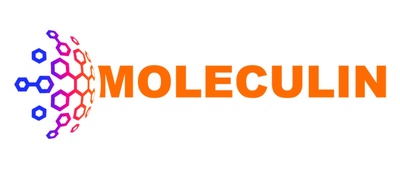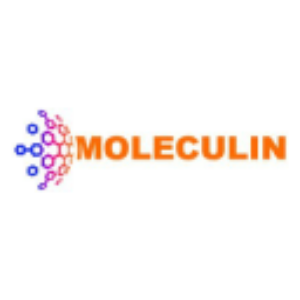Moleculin Receives FDA Allowance to Begin a Phase 1 Study of WP1122 for the Treatment of Glioblastoma Multiforme
Moleculin Biotech, Inc. (Nasdaq: MBRX) announced that the FDA has approved its IND application to study WP1122 for the treatment of Glioblastoma Multiforme (GBM). This allows the company to initiate a Phase 1 study assessing the safety and efficacy of oral WP1122 in adult GBM patients. Moleculin plans to conduct an additional trial in the UK to evaluate WP1122 as a potential COVID-19 therapy. Their strategy aims to address highly glycolytic cancers and leverage external funding for future clinical trials, particularly in 2022.
- FDA approval of IND application for WP1122 paves the way for Phase 1 study.
- Plans for parallel development of WP1122 as both a cancer and antiviral therapy.
- Potential for WP1122 to treat other cancers, such as pancreatic cancer.
- GBM has a median survival of only 15 months, indicating the need for effective therapies.
- No notable improvement in GBM survival rates over the last three decades.
HOUSTON, Dec. 1, 2021 /PRNewswire/ -- Moleculin Biotech, Inc., (Nasdaq: MBRX) (Moleculin or the Company), a clinical stage pharmaceutical company with a broad portfolio of drug candidates targeting highly resistant tumors and viruses, today announced that the US Food and Drug Administration (FDA) is allowing the Company's Investigational New Drug (IND) application to study WP1122 for the treatment of Glioblastoma Multiforme (GBM) to go forward. With this IND now cleared, Moleculin plans to initiate a Phase 1 open label, single arm, dose escalation study of the safety, pharmacokinetics and efficacy of oral WP1122 in adult patients with GBM.
The Company believes WP1122 has significant potential as both an antiviral therapy and as a cancer therapy. Moleculin recently announced its plans to initiate a Phase 1a clinical trial of WP1122 in healthy volunteers in the United Kingdom to facilitate future testing in COVID-19 patients. This new US IND sets the stage for parallel development of WP1122 as a cancer therapy. Consistent with its strategy of leveraging external funding for many of its clinical trials, Moleculin intends to seek opportunities for an investigator-initiated clinical trial of WP1122 in cancer patients in 2022.
"This IND underscores our dual pronged approach to the development of WP1122 for the treatment of both certain types of cancers and viruses. In addition to the trial in the UK designed to position WP1122 as an antiviral therapy, we can now be advancing the cancer therapy path in parallel. Along with GBM, we believe WP1122 has the potential to be well suited as a treatment for other highly glycolytic cancers such as pancreatic cancer," commented Walter Klemp, Chairman and CEO of Moleculin.
GBM is the most aggressive malignant primary brain tumor and remains as an incurable tumor with a median survival of only 15 months1. It is the most common malignant primary brain tumor making up
About Moleculin Biotech, Inc.
Moleculin Biotech, Inc. is a clinical stage pharmaceutical company focused on the development of a broad portfolio of drug candidates for the treatment of highly resistant tumors and viruses. The Company's lead program, Annamycin is a next-generation anthracycline designed to avoid multidrug resistance mechanisms with little to no cardiotoxicity. Annamycin is currently in development for the treatment of relapsed or refractory acute myeloid leukemia (AML) and soft tissue sarcoma (STS) lung metastases.
Additionally, the Company is developing WP1066, an Immune/Transcription Modulator capable of inhibiting p-STAT3 and other oncogenic transcription factors while also stimulating a natural immune response, targeting brain tumors, pancreatic and other cancers, and WP1220, an analog to WP1066, for the topical treatment of cutaneous T-cell lymphoma. Moleculin is also engaged in the development of a portfolio of antimetabolites, including WP1122 for the potential treatment of COVID-19 and other viruses, as well as cancer indications including brain tumors, pancreatic and other cancers.
For more information about the Company, please visit www.moleculin.com and connect on Twitter, LinkedIn and Facebook.
Forward-Looking Statements
Some of the statements in this release are forward-looking statements within the meaning of Section 27A of the Securities Act of 1933, Section 21E of the Securities Exchange Act of 1934 and the Private Securities Litigation Reform Act of 1995, which involve risks and uncertainties. Forward-looking statements in this press release include, without limitation, the ability of WP1122 to demonstrate safety and efficacy in patients, and the ability of the Company to commence an investigator-initiated clinical trial of WP1122 in cancer patients in 2022. Although Moleculin believes that the expectations reflected in such forward-looking statements are reasonable as of the date made, expectations may prove to have been materially different from the results expressed or implied by such forward-looking statements. Moleculin has attempted to identify forward-looking statements by terminology including ''believes,'' ''estimates,'' ''anticipates,'' ''expects,'' ''plans,'' ''projects,'' ''intends,'' ''potential,'' ''may,'' ''could,'' ''might,'' ''will,'' ''should,'' ''approximately'' or other words that convey uncertainty of future events or outcomes to identify these forward-looking statements. These statements are only predictions and involve known and unknown risks, uncertainties, and other factors, including those discussed under Item 1A. "Risk Factors" in our most recently filed Form 10-K filed with the Securities and Exchange Commission ("SEC") and updated from time to time in our Form 10-Q filings and in our other public filings with the SEC. Any forward-looking statements contained in this release speak only as of its date. We undertake no obligation to update any forward-looking statements contained in this release to reflect events or circumstances occurring after its date or to reflect the occurrence of unanticipated events.
Investor Contact:
JTC Team, LLC
Jenene Thomas
(833) 475-8247
MBRX@jtcir.com
1 Koshy M, Villano JL, Dolecek TA, Howard A, Mahmood U, Chmura SJ, et al. Improved survival time trends of glioblastoma using the SEER 17 population-based registries. J Neuro Oncol. 2012;107(1):207–12
2 Ostrom QT, Gittleman H, Farah P, Ondracek A, Chen Y, Wolinsky Y, et al. CBTRUS statistical report: Primary brain and central nervous system tumors diagnosed in the United States in 2006–2010. Neuro Oncol. 2013;15 Suppl:2ii–56.
3 De Vleeschouwer S, editor. Brisbane (AU): Codon Publications; 2017 Sep 27.
4 Thakkar J, Dolecek TA, Horbinski C, Ostrom QT, Lightner DD, Barnholtz-Sloan JS, et al. Epidemiologic and molecular prognostic review of glioblastoma. Cancer Epidemiol. Biomarkers Rev. 2014;23(10):1985–96.
![]() View original content to download multimedia:https://www.prnewswire.com/news-releases/moleculin-receives-fda-allowance-to-begin-a-phase-1-study-of-wp1122-for-the-treatment-of-glioblastoma-multiforme-301434546.html
View original content to download multimedia:https://www.prnewswire.com/news-releases/moleculin-receives-fda-allowance-to-begin-a-phase-1-study-of-wp1122-for-the-treatment-of-glioblastoma-multiforme-301434546.html
SOURCE Moleculin Biotech, Inc.
FAQ
What is the purpose of the Phase 1 study for WP1122?
When does Moleculin plan to initiate clinical trials for WP1122?
What are the implications of the FDA's approval of WP1122?
How does WP1122 compare with other treatments for GBM?








